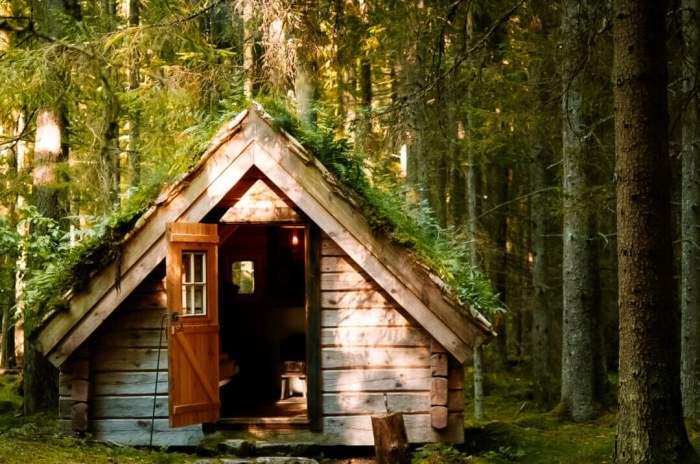Eco-friendly hotel accommodations are redefining the way we experience travel, blending comfort with sustainability for a greener future. As travelers become more conscious of their ecological footprint, the hospitality industry is responding with innovative practices that prioritize the environment. From reducing waste to utilizing renewable resources, these accommodations not only enhance the guest experience but also contribute to the preservation of our planet.
In this landscape, traditional hotel practices often come under scrutiny for their significant environmental impact. By adopting eco-friendly measures, hotels can mitigate these concerns while reaping benefits that enhance their appeal to an increasingly eco-conscious clientele. This shift towards sustainable travel is not just a trend; it’s a necessary evolution in the way we engage with the world around us.
Importance of Eco-Friendly Hotel Accommodations
The hospitality industry plays a crucial role in shaping travel experiences, and its impact on the environment is significant. Eco-friendly hotel accommodations are not just a trend; they signify a necessary shift towards sustainable travel practices that prioritize the well-being of our planet. These accommodations help minimize the environmental footprint of tourism, making it vital for both travelers and the hospitality sector to embrace sustainable options.Traditional hotel practices often contribute heavily to environmental degradation.
Common practices such as excessive water usage, reliance on single-use plastics, and energy-intensive systems lead to increased carbon emissions and resource depletion. Hotels typically consume a large amount of water and energy for operations, from heating to laundry services, resulting in substantial waste. Furthermore, the disposal of non-biodegradable materials and chemical pollutants from cleaning products exacerbates the ecological crises we face today.
Benefits of Eco-Friendly Accommodations
Eco-friendly accommodations offer a multitude of benefits, not only for guests but also for the environment. The advantages can be categorized into various areas:
- Resource Conservation: Eco-friendly hotels implement practices that conserve water and energy, reducing resource consumption significantly. These hotels often use energy-efficient lighting and appliances, alongside water-saving fixtures.
- Waste Reduction: Many eco-friendly accommodations adopt recycling programs and composting initiatives to minimize waste generation. This not only reduces landfill contributions but also promotes a circular economy.
- Local Community Support: Eco-friendly hotels often prioritize local sourcing for their food and supplies, which supports local economies and reduces the carbon footprint associated with transportation.
- Enhanced Guest Experience: Staying in an eco-friendly hotel can enhance the guest experience through unique offerings, such as organic cuisine, wellness programs, and opportunities for eco-tourism activities.
- Positive Brand Image: Hotels that adopt sustainable practices often benefit from a positive brand image, attracting eco-conscious travelers and enhancing customer loyalty.
- Education and Awareness: Many eco-friendly hotels engage their guests in sustainability initiatives, fostering a greater awareness of environmental issues and encouraging guests to adopt eco-friendly practices in their own lives.
“The future of hospitality depends on sustainable practices that not only enhance guest experiences but also protect our planet for generations to come.”
If you’re looking to add some rhythm to your vacation, consider staying at one of the hotels with dance classes. These unique accommodations not only provide a place to rest but also offer the chance to learn new moves and enjoy local dance styles, enhancing your travel experience. Whether you’re a beginner or a seasoned dancer, these hotels make for an unforgettable getaway.
Overall, the importance of eco-friendly hotel accommodations extends beyond mere preference; they represent a fundamental change in how we approach travel in a way that respects and rejuvenates our environment.
Features of Eco-Friendly Hotels: Eco-friendly Hotel Accommodations

Eco-friendly hotels have emerged as a vital aspect of sustainable tourism, showcasing a commitment to environmentally responsible practices while providing high-quality accommodations. These establishments not only appeal to environmentally conscious travelers but also aim to minimize their carbon footprints and conserve natural resources. By integrating innovative designs and sustainable technologies, eco-friendly hotels contribute positively to their surroundings.
Sustainable Practices in Eco-Friendly Hotels
Eco-friendly hotels adopt a variety of sustainable practices aimed at reducing environmental impact. These practices include:
- Water Conservation: Implementing low-flow fixtures, rainwater harvesting systems, and greywater recycling to minimize water usage.
- Waste Reduction: Promoting recycling programs, composting organic waste, and providing guests with reusable amenities to reduce single-use plastics.
- Local Sourcing: Prioritizing local and organic products for dining options, supporting local farmers and reducing transportation emissions.
- Community Engagement: Involving local communities in projects, offering cultural experiences, and supporting local artisans.
Eco-Friendly Materials in Hotel Construction and Design, Eco-friendly hotel accommodations
The construction and design of eco-friendly hotels heavily rely on sustainable materials that reduce environmental impact while ensuring durability and aesthetic appeal. Examples of these materials include:
- Bamboo: A highly renewable resource used for flooring and furniture due to its strength and rapid growth rate.
- Recycled Steel: Used in structural frameworks to minimize the need for new raw materials and reduce energy consumption during production.
- Low-VOC Paints: These paints improve indoor air quality by minimizing harmful emissions.
- Sustainable Wood: Sourced from certified forests, this wood minimizes deforestation and promotes responsible forest management.
Energy-Efficient Technologies in Hotel Management
Energy efficiency is a cornerstone of eco-friendly hotel management, integrating advanced technologies that significantly reduce energy consumption. Key technologies employed include:
- Smart Thermostats: Automatically adjust heating and cooling based on occupancy, optimizing energy usage.
- LED Lighting: Utilizing energy-efficient LED bulbs that consume less power and have longer lifespans compared to traditional lighting.
- Solar Panels: Harnessing renewable energy from the sun, which can power various hotel operations, reducing reliance on fossil fuels.
- Energy Management Systems: Monitoring and controlling energy consumption in real-time, allowing for better energy efficiency and cost savings.
Certifications and Standards for Sustainable Hotels

In the quest for sustainability, eco-friendly hotels often seek certifications that validate their environmental efforts. These certifications serve as a benchmark for sustainable practices and provide assurance to eco-conscious travelers. Understanding the certifications available can guide hotels in their journey toward greater sustainability and help guests make informed choices when selecting accommodations.Various organizations have established certifications that eco-friendly hotels can obtain, each with its own set of standards and criteria.
These certifications help ensure that hotels adhere to environmentally responsible practices, promoting a sustainable future for the hospitality industry. The following are some of the most recognized certifications in sustainable hotel practices:
Key Sustainable Certifications
Several certifications stand out in the eco-hotel landscape, reflecting varying focuses such as energy efficiency, water conservation, and waste management. Here are some significant certifications that hotels can aim for:
- LEED (Leadership in Energy and Environmental Design): A globally recognized symbol of sustainability achievement, LEED certification encompasses several areas, including energy efficiency, water conservation, and sustainable materials usage. Hotels must demonstrate a commitment to green building practices, often involving rigorous documentation and third-party verification.
- Green Key Eco-Rating Program: This program evaluates hotels on a range of eco-friendly practices, including waste management, energy conservation, and community involvement. To achieve certification, hotels must meet specific criteria set by the program, which vary by property size and type.
- EarthCheck: This certification focuses on environmental management and sustainability practices. Hotels must follow a rigorous benchmarking process that assesses energy usage, waste management, and water efficiency, ensuring continuous improvement toward sustainability goals.
- Travelife: A certification program for tourism businesses that promotes sustainable management practices. Hotels must document their environmental impacts and demonstrate progress in key areas such as energy, water, and social responsibility.
The criteria for achieving these certifications typically include comprehensive environmental management systems, regular audits, and adherence to established sustainability benchmarks. Hotels must often provide evidence of their practices and demonstrate a commitment to ongoing improvement in their sustainability efforts.
Amsterdam is a city that captivates visitors with its charming canals and rich culture. When planning your stay, check out the variety of luxurious and budget-friendly hotels in Amsterdam that cater to diverse needs. From historic buildings to modern amenities, these hotels ensure a comfortable base for exploring the vibrant art scene and nightlife that the city has to offer.
“Certifications not only validate a hotel’s commitment to sustainability but also influence guest choices, as more travelers prioritize environmentally responsible accommodations.”
The presence of these certifications significantly impacts guest decisions when booking accommodations. Eco-conscious travelers are increasingly seeking hotels that display commitment to sustainability, often considering certifications as a primary factor in their selection process. Hotels with recognized certifications can attract a niche market of environmentally aware guests, enhancing their reputation and potentially leading to increased occupancy rates. As consumers become more knowledgeable about sustainability, the importance of these certifications in influencing guest choices continues to grow.
Marketing Strategies for Eco-Friendly Hotels
In today’s environmentally conscious society, eco-friendly hotels are not just a niche market; they are becoming increasingly vital in the hospitality industry. To thrive, these hotels must adopt effective marketing strategies that highlight their commitment to sustainability and attract eco-minded travelers. This segment delves into the vital marketing initiatives that can elevate the visibility and credibility of eco-friendly hotels.
Marketing Plan Emphasizing Eco-Friendly Initiatives
A well-structured marketing plan is essential for eco-friendly hotels to communicate their sustainable practices effectively. This includes identifying target audiences that value sustainability and developing campaigns that resonate with their values. Key components of such a plan include:
- Highlighting Environmental Practices: Showcase initiatives such as energy-efficient systems, water conservation measures, and the use of locally sourced materials. Use compelling storytelling to illustrate the impact of these practices on the environment.
- Creating Eco-Packages: Offer special packages that include eco-friendly activities, such as guided nature tours or organic cooking classes, to enhance the guest experience while promoting sustainability.
- Utilizing Green Certifications: Leverage recognized certifications, such as LEED or Green Key, in marketing materials to build trust and credibility among potential guests.
Role of Social Media in Promoting Sustainable Hotel Practices
Social media platforms serve as powerful tools for eco-friendly hotels to engage with audiences and promote their sustainability efforts. These platforms allow hotels to share real-time updates, eco-tips, and success stories that resonate with their audience. Effective strategies include:
- Visual Storytelling: Utilize platforms like Instagram and Pinterest to share high-quality images of eco-friendly practices, such as organic gardens or solar panels, to capture the attention of potential guests.
- Engagement Campaigns: Create interactive posts and polls that encourage followers to share their sustainable travel experiences or thoughts on green initiatives.
- Influencer Collaborations: Partner with eco-conscious influencers who can reach a broader audience and lend credibility to the hotel’s sustainability efforts.
Partnerships with Environmental Organizations
Collaborating with environmental organizations can significantly enhance the credibility of eco-friendly hotels. These partnerships not only reinforce the hotel’s commitment to sustainability but also open avenues for joint marketing efforts. Consider the following approaches:
- Co-Branding Initiatives: Work alongside reputable environmental groups to develop campaigns or events that raise awareness about sustainability in travel.
- Donation Programs: Implement programs where a portion of each booking goes to a partner organization, thus encouraging guests to contribute to environmental causes.
- Educational Workshops: Host workshops or seminars with experts from environmental organizations to educate guests about sustainable practices, further solidifying the hotel’s position as a leader in eco-tourism.
“Sustainability is not just a trend; it is the future of hospitality.”
The Future of Eco-Friendly Hotel Accommodations

As the hospitality industry evolves, eco-friendly hotel accommodations will play a crucial role in addressing sustainability challenges. With travelers increasingly prioritizing environmental consciousness, the future of eco-friendly hotels is poised for growth and transformation. This shift is not only driven by consumer demand but also by the broader movement towards sustainable living and responsible tourism.Several trends are shaping the future of eco-friendly hospitality, including advancements in technology, changing consumer preferences, and regulatory pressures.
The integration of smart technology in hotels is a significant trend, allowing for more efficient energy management and resource utilization. For example, hotels are adopting smart thermostats and energy-efficient lighting systems, which adjust automatically based on occupancy, ultimately reducing energy consumption.
Trends Influencing Eco-Friendly Hospitality
The following trends highlight the key factors steering the future of sustainable hotel practices:
- Increased Consumer Awareness: Travelers are becoming more informed about their environmental impact and are actively seeking accommodations that align with their values. This growing awareness encourages hotels to adopt sustainable practices.
- Government Regulations: Stricter environmental regulations are compelling hotels to transition to greener operations. Governments are implementing policies that incentivize sustainability, such as tax breaks for energy-efficient upgrades.
- Technological Innovations: The rise of eco-friendly technologies, such as solar panels, energy-efficient appliances, and water-saving fixtures, allows hotels to operate sustainably while reducing operational costs.
- Collaborative Sustainability Efforts: Hotels are increasingly partnering with local communities and organizations to promote sustainability initiatives. This collaboration enhances the guest experience while supporting local economies.
- Wellness and Eco-Tourism Trends: There is a growing intersection between wellness and eco-tourism. Hotels are incorporating wellness programs that focus on natural experiences, such as outdoor activities and organic dining options, further appealing to health-conscious travelers.
Challenges in Transitioning to Sustainable Practices
Transitioning to eco-friendly operations poses several challenges for hotels. While the benefits are evident, the following obstacles must be addressed:
- High Initial Costs: The upfront investment required for sustainable technologies and renovations can be a barrier, particularly for smaller hotels.
- Lack of Knowledge: Many hotel operators lack the necessary knowledge about sustainability practices, leading to ineffective implementations that do not yield expected results.
- Balancing Cost and Sustainability: Hotels often struggle to maintain profitability while investing in eco-friendly initiatives. Finding a balance between sustainability and guest satisfaction is crucial.
- Changing Regulations: The evolving nature of environmental regulations can create uncertainty for hotels, making long-term planning more complicated.
Innovative Ideas for Enhancing Eco-Friendliness
To further enhance eco-friendliness in hotel accommodations, several innovative ideas can be implemented:
- Green Roofs and Urban Gardens: Utilizing green roofs and urban gardens can improve air quality and biodiversity while providing guests with unique spaces for relaxation and education about local flora.
- Zero Waste Initiatives: Implementing zero waste policies can significantly reduce landfill contributions. This includes composting organic waste and minimizing single-use plastics in guest services.
- Carbon Offsetting Programs: Hotels can offer guests the option to contribute to carbon offset programs, helping to compensate for their travel emissions and promote environmental responsibility.
- Local Sourcing: Working with local suppliers for food and amenities not only reduces transportation emissions but also supports local economies while enhancing the guest experience.
- Interactive Sustainability Education: Engaging guests in sustainability practices through interactive programs, such as workshops on eco-friendly practices or nature tours, can foster a deeper connection to environmental stewardship.